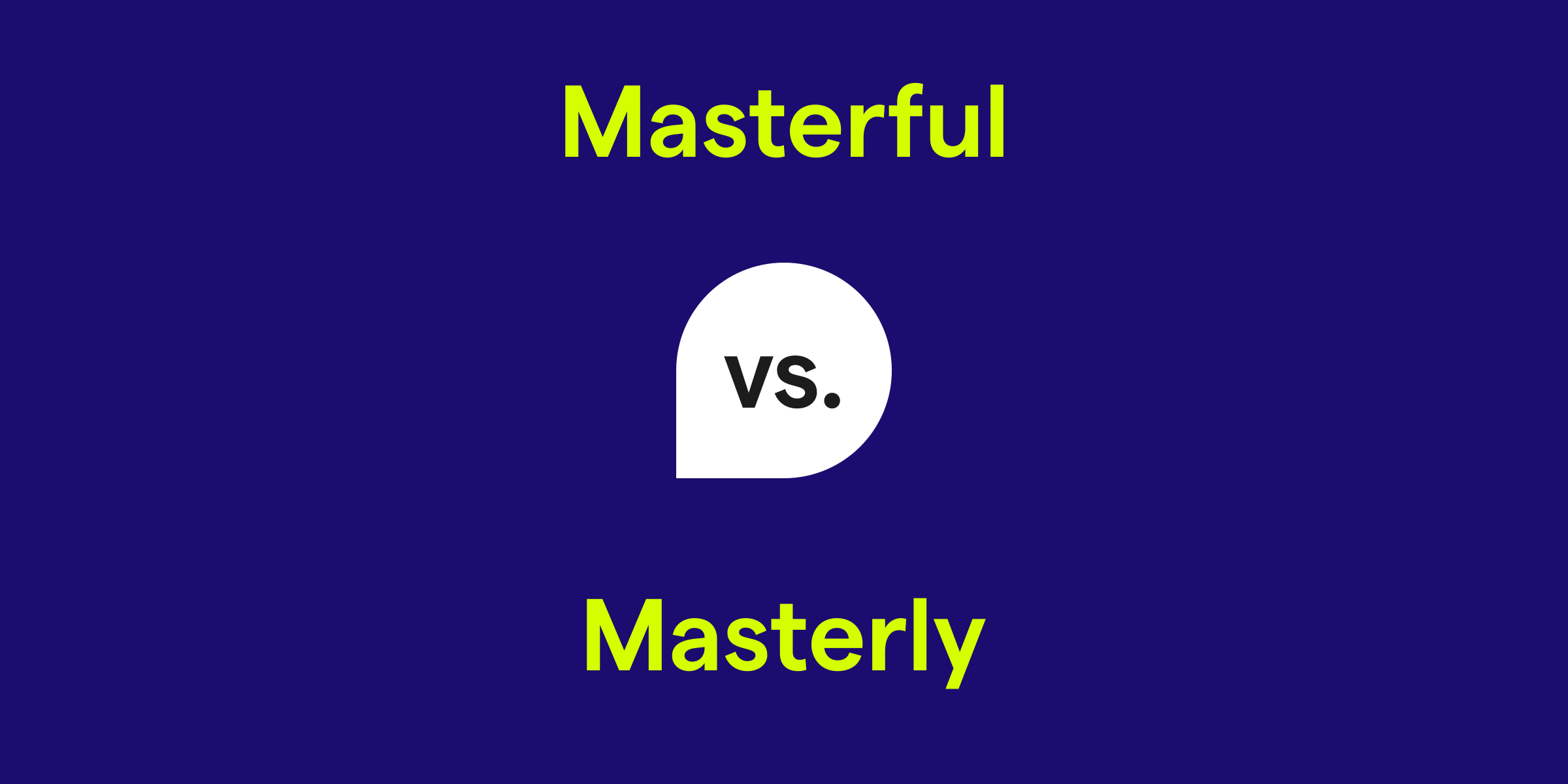Masterful vs. Masterly: What's the Difference?
Both masterful and masterly relate to the display of great skill, but they are used in slightly different contexts. The term masterful typically implies control or dominance in a situation, often suggesting a person who commands authority or expertise. Masterly, on the other hand, tends to refer more directly to an artist or artisan displaying great skill or craftsmanship in their work. It is often used to praise a particular piece of work rather than the general character of a person.

How do you use the word masterful in a sentence?
Use masterful when you want to describe someone's ability to take charge or exert control in a particular situation. It carries a sense of authority and assertiveness, usually associated with leadership or compelling strategy. It is often used to compliment people for their exertion of dominance in their field or activity.
Examples of masterful in a sentence
- The CEO's masterful handling of the crisis averted a disaster for the company.
- She gave a masterful performance, leading the team to victory with decisive moves.
- His masterful command of the courtroom swayed the jury in his favor.
How do you use the word masterly in a sentence?
The word masterly is best used when commending someone for their technical skill or artistic prowess. It often appears in reviews and critiques of creative works, such as music, painting, and literature. When magnifying the elegance and excellence of a specific work, masterly is the term that conveys the sense of a masterpiece.
Examples of masterly in a sentence
- The painter executed a masterly stroke, capturing the light in a way that seemed almost magical.
- His latest novel is a masterly blend of historical fact and gripping narrative.
- The chef's masterly use of spices created an unforgettable culinary experience.
Masterful and masterly definition, parts of speech, and pronunciation
Masterful definition:
Masterful is an adjective that describes someone possessing or showing great skill or proficiency, especially in a commanding or controlling way.
Masterful parts of speech:
Masterful pronunciation:
The pronunciation of 'masterful' is /ˈmɑː.stə.fəl/.
Masterly definition:
Masterly is an adjective that describes the execution of something with great skill or artistry, particularly in a creative context.
Masterly parts of speech:
Masterly pronunciation:
The pronunciation of 'masterly' is /ˈmæs.tɚ.li/.
Masterful is an adjective that describes someone possessing or showing great skill or proficiency, especially in a commanding or controlling way.
Masterful parts of speech:
- As an adjective, masterful describes the quality of someone's actions. For example: His masterful leadership inspired the whole team.
Masterful pronunciation:
The pronunciation of 'masterful' is /ˈmɑː.stə.fəl/.
Masterly definition:
Masterly is an adjective that describes the execution of something with great skill or artistry, particularly in a creative context.
Masterly parts of speech:
- Used as an adjective, masterly refers to an adept skill in artistic endeavors. For example: The violinist delivered a masterly performance.
Masterly pronunciation:
The pronunciation of 'masterly' is /ˈmæs.tɚ.li/.
Masterful vs. Masterly in a nutshell
Masterful and masterly are related but have distinct uses. Masterful implies a sense of authority, control, and expertise, often applied to a person's general demeanor or approach to situations. Masterly, conversely, is used to describe a high degree of skill or artistry, usually in the context of a specific work or performance. While both terms denote proficiency, they highlight different aspects: the former emphasizes the exertion of dominance, and the latter emphasizes technical excellence and artistic achievement.
Get AI Writing Assistance Wherever You Type
Make sure your vocabulary is on point and every punctuation mark is in the right place, no matter where you’re working. Grammarly works across more than 1 million websites and apps so you can improve your writing without copying, pasting, or breaking focus.

More Commonly Confused Words
Interest piqued? Pore (not pour) over other commonly confused words to help your writing reach peak (not peek) performance.